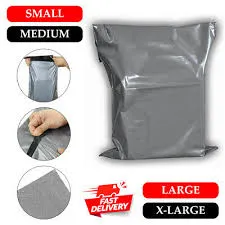biodegradable bags in compost
The Role of Biodegradable Bags in Composting
In recent years, the growing concern over plastic pollution has spurred a significant interest in biodegradable materials, particularly biodegradable bags. These bags are designed to break down more easily than traditional plastic, presenting an appealing alternative for waste management. Among their various applications, biodegradable bags are increasingly used in composting processes. This article will explore the importance of biodegradable bags in composting, their benefits, and considerations for effective use.
Understanding Biodegradable Bags
Biodegradable bags are typically made from natural materials such as cornstarch, vegetable fats, or other renewable resources. Unlike conventional plastic bags, which can take hundreds of years to decompose in landfills, biodegradable bags are engineered to break down into natural substances within a shorter timeframe. This characteristic not only reduces waste but also minimizes the environmental impact of plastic proliferation.
When it comes to composting, biodegradable bags can be an excellent tool for collecting organic waste. They allow users to easily gather kitchen scraps, yard waste, and other organic materials without the need to handle them directly. As these bags decompose, they can contribute to the nutrient content of the compost, enriching the soil and fostering healthy plant growth.
Benefits of Using Biodegradable Bags in Composting
1. Convenience Biodegradable bags provide a practical solution for collecting organic waste. They can be used in kitchens, gardens, or during community cleanup events, allowing for hassle-free disposal of compostable materials.
2. Reduction of Contamination Using biodegradable bags can help reduce contamination in compost bins. Traditional plastic bags can introduce non-biodegradable materials into compost, hindering the decomposition process and resulting in lower-quality compost. By using biodegradable bags, users ensure that the materials they are composting break down correctly, promoting a healthier composting ecosystem.
3. Enhanced Compost Quality As biodegradable bags decompose along with the organic waste, they contribute to the overall nutrient profile of the compost. This can lead to richer, more organic compost that enhances soil health and supports plant growth.
biodegradable bags in compost

4. Environmental Impact By choosing biodegradable bags, consumers actively participate in reducing plastic pollution. These bags are designed to decompose, resulting in less waste going to landfills and reducing the negative impact on ecosystems.
Considerations for Effective Use
While biodegradable bags offer numerous advantages, it is essential to consider a few factors for their effective use in composting
1. Composting Methods Not all composting systems can break down biodegradable bags. Home compost bins and industrial composting facilities differ in their temperature and moisture levels, which affect the decomposition of these bags. It is vital to check whether the composting method being employed is suitable for the specific type of biodegradable bag used.
2. Certification and Standards Not all biodegradable bags are created equal. It is important to look for bags that have been certified by recognized organizations, such as the ASTM D6400 or EN 13432 standards. These certifications ensure that the bags can effectively break down in composting conditions.
3. Proper Disposal Biodegradable bags should always be disposed of in a manner consistent with their intended use. For maximum efficacy, they should be composted rather than thrown in landfills. When composted correctly, they can provide valuable nutrients and help divert organic waste from traditional waste disposal systems.
4. Public Awareness Educating communities about the benefits and proper use of biodegradable bags in composting can amplify their impact. Campaigns and workshops can promote better practices, leading to a more significant reduction in plastic waste and an increase in effective composting initiatives.
In conclusion, biodegradable bags represent a promising alternative to traditional plastic bags in the context of composting. By facilitating the collection of organic waste and contributing to compost quality, they help promote sustainable waste management practices and reduce the environmental impact of plastic pollution. As we move toward a greener future, embracing biodegradable options can play a crucial role in nurturing our planet.
-
Have the freedom of customizing your custom mailers any way you want! Our dedicated packaging support will help deliver you the mailing experience you need to elevate your shipping experience to the next level! Start making a strong impression on your customers and stand out from your competitors! -
LIYA uses high quality raw materials which directly purchased from large enterprises domestic and overseas such as PetroChina, Sinopec, Sabic, Equate, ExxonMobil, Dow Chemical, Total, and Borouge, ensuring the price advantage and quality of the raw materials. -
LIYA uses high quality raw materials which directly purchased from large enterprises domestic and overseas such as PetroChina, Sinopec, Sabic, Equate, ExxonMobil, Dow Chemical, Total, and Borouge, ensuring the price advantage and quality of the raw materials.





